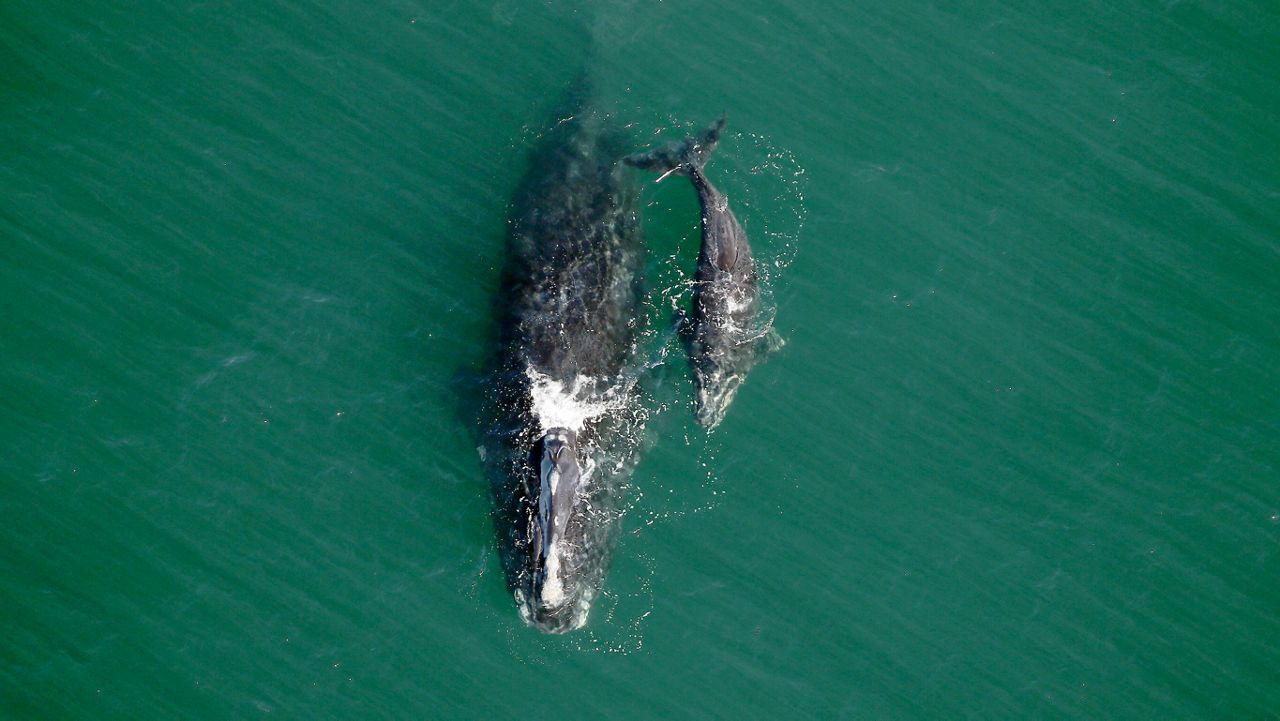CLEARWATER, Fla. — When they see a mom and a baby together, marine researchers get the urge to celebrate.
That goes especially for when they spot right whales.
What You Need To Know
- Clearwater institute says it spots adult right whale with a calf off Georgia this week
- North Atlantic right whales number fewer than 400, researchers say
- It’s the fourth mother/calf pair spotted in the area in recent months
- Calving grounds extend from Carolinas to south of Cape Canaveral
An aerial survey team with the Clearwater Marine Aquarium Research Institute identified a pair of North Atlantic right whales — an adult and a calf — off the Georgia coast on Monday, the institute said.
That prompted researchers to express a degree of optimism about the future of the endangered species.
“Each calf continues to give us hope,” research biologist Melanie White said in a news release from the Clearwater Marine Aquarium Research Institute.
The sighting marked the fourth identification of a mother and calf right whale pair off the Georgia coast in recent months, the institute said.
Researchers consider that significant because they estimate the North Atlantic right whale population at fewer than 400, including fewer than 100 breeding females.
The National Oceanic and Atmospheric Administration designates calving grounds from the southeastern coast of North Carolina to south of Cape Canaveral as critical habitat for the North Atlantic right whale.
NOAA Fisheries attributes the right whale’s decline to climate change, vessel strikes, entanglement in fishing gear, and noise from human activities that disrupts their ability to communicate and navigate safely.
The Clearwater Marine Aquarium Research Institute says its aerial survey teams work with U.S. and Georgia agencies to document reproductive rates of the whales. Among other roles, they also assist with locating whales for genetic sampling and satellite tagging, the institute says.
Researchers identified the mother whale in this week’s sighting as “Nauset,” age 27. They said this marks her fourth calf.
White, the institute’s North Atlantic right whale conservation project manager, said in the news release that “there is a long way to go for this fragile species.”
She added: “While it is also the hope to come across a new mother-calf pair during our surveys, the elevated level of (excitement) among the observers inside the plane never gets old when we do.”




